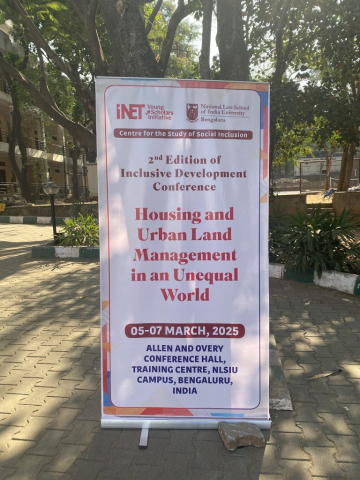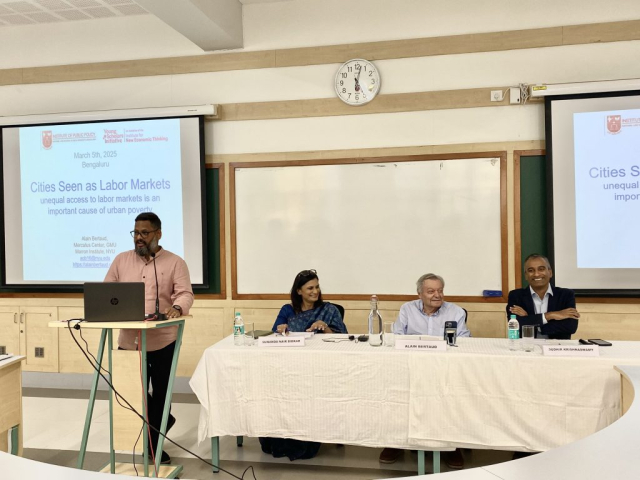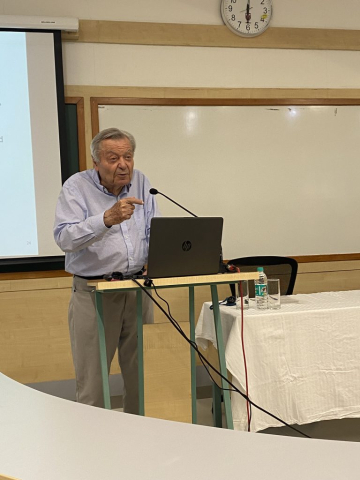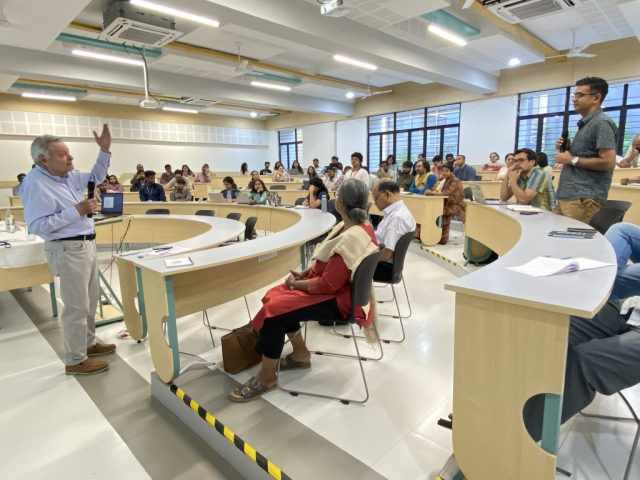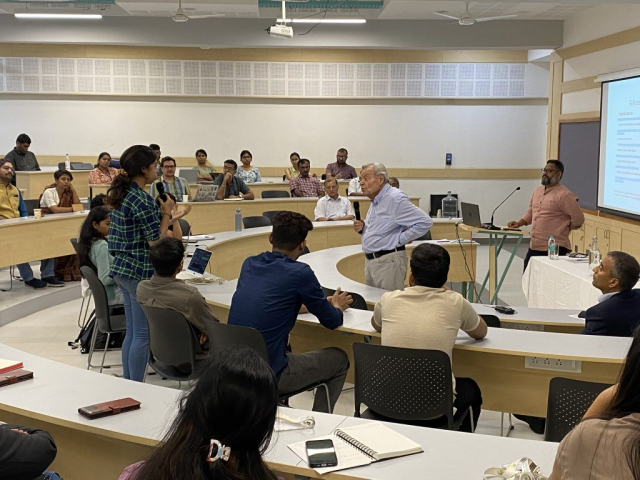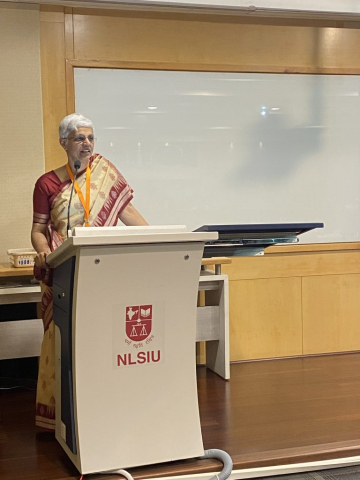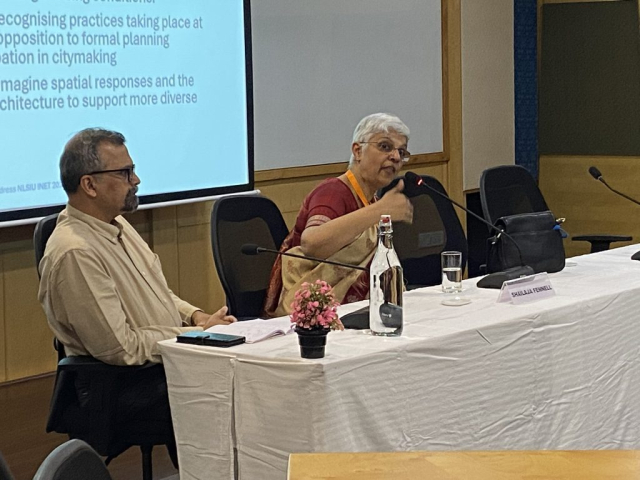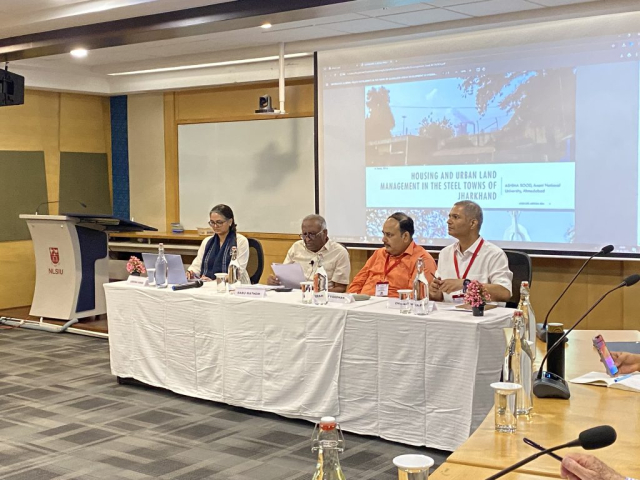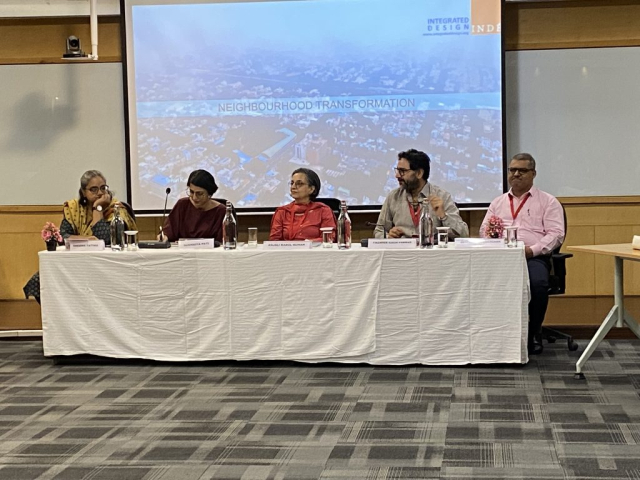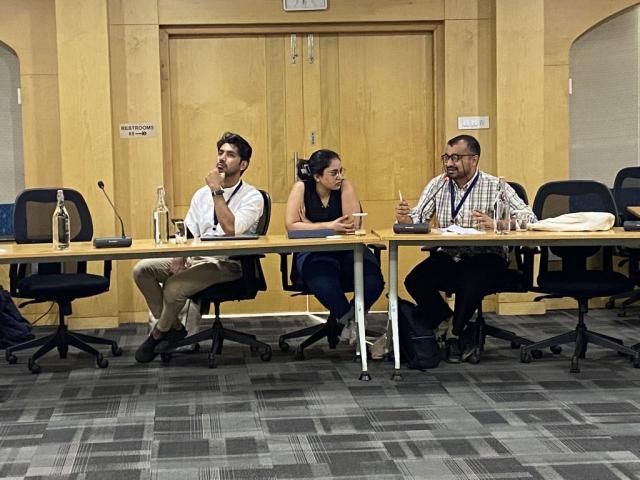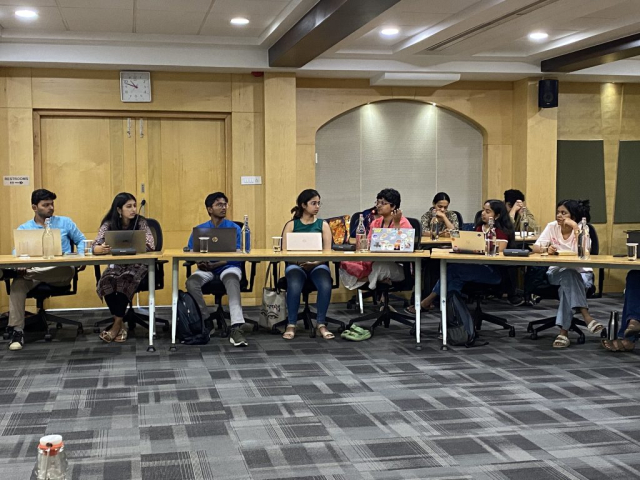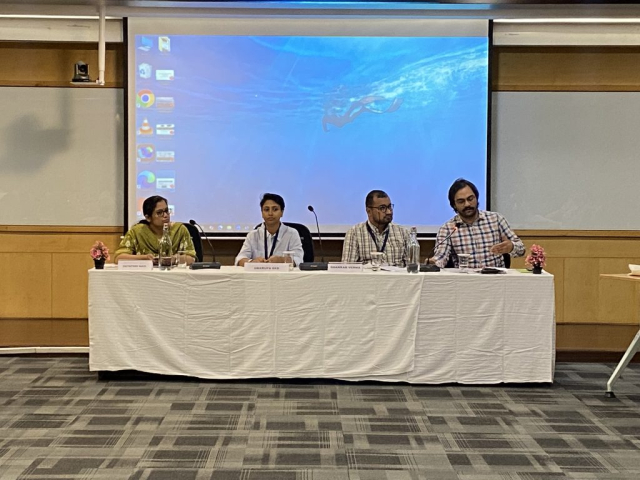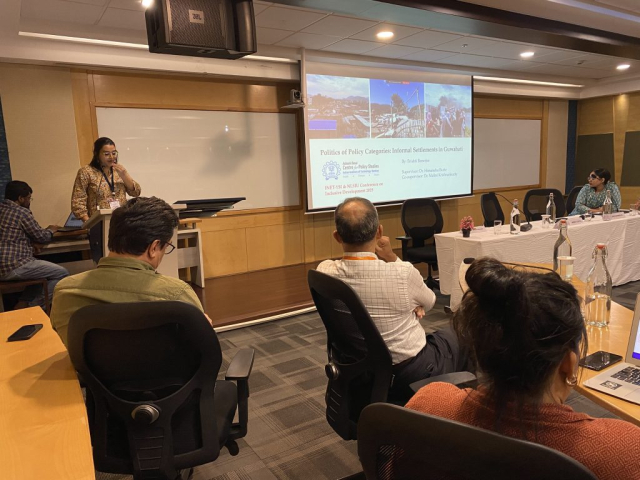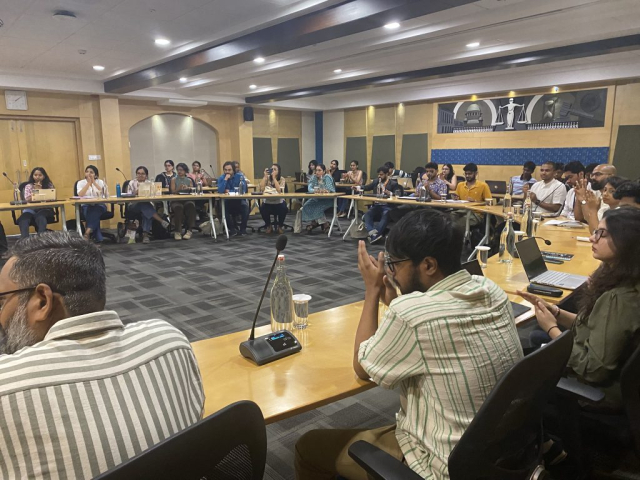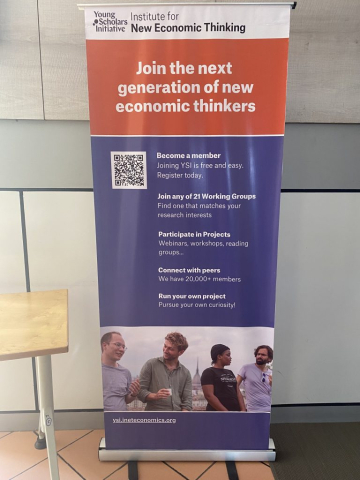Reflections | Inclusive Development Conference: Housing and Urban Land Management in an Unequal World
March 10, 2025
The Centre for the Study of Social Inclusion (CSSI) at the National Law School of India University (NLSIU) and Institute for New Economic Thinking-Young Scholars Initiative (INET-YSI) organised the 2nd Edition of Inclusive Development Conference: Housing and Urban Land Management in an Unequal World from March 5 to 7, 2025.
About the Inclusive Development Conference
The first edition of the conference centring on the ‘Role of Employment and Environment’ was held from March 28-30, 2023. The conference focussed on inclusive development, especially the role of employment opportunities in a changing world of work and the environment in envisioning inclusiveness. The conference included contributions from senior academicians, policy makers and legal professionals as well paper-presentations from selected young scholars from across the subcontinent.
Following the success of the first edition of this conference, NLSIU and INET-YSI partnered to organise the second edition of the conference in 2025, with a similar format. The conference aimed to examine the complex interplay of housing, law, economics, and spatial justice in an unequal world.
Schedule
The three-day conference kicked off with an inaugural address by Mr. Alain Bertaud, Distinguished Visiting Scholar, Mercatus Center, George Mason University. Mr. Bertaud addressed a gathering of NLSIU students and participating young scholars from across other institutions in his talk on ‘Cities Seen As Labour Markets,’ where he postulated that unequal access to labour markets is an important cause of urban poverty.
The second day of the conference began with an expert panel discussion on ‘Housing and Urban Land Management in the Context of Inequality.’ The third day opened with an expert panel on ‘Social and Economic Dimensions of Urban Housing.’ In addition to the panel discussions, Day 2 and 3 also saw paper presentations by young scholars, who were paired with expert discussants.
The conference ended with a valedictory address on ‘Urban Inclusion and Housing as a Form of Agency’ by Dr. Shailaja Fennell, Professor of Economic Security and Resilience; Deputy HoD, Department of Land Economy; Director, Centre of South Asian Studies; Fellow and Director of Studies, Jesus College University of Cambridge.
Find the full schedule here.
A Note from the Organisers
Dr. rer. pol. Sattwick Dey Biswas, Volunteer, Coordinator, Young Scholars Initiative (YSI), Institute for New Economic Thinking (INET)
“Being part of the 2nd Edition of the Inclusive Development Conference as a volunteer and an organiser of INET’s Young Scholars Initiative was an enriching experience. The conference brought together young and senior scholars to engage in critical discussions on housing, urban governance, and spatial planning and justice, while exploring themes like informality, financialisation, market and social forces and identity politics in housing policies. As a young scholar working in the field of land policy, it was a rare opportunity for me to connect with fellow scholars working in India.
One of the most rewarding aspects was creating an interactive format where young scholars received thoughtful and detailed feedback on their work from senior academics. I want to thank all the senior scholars for sharing their valuable time to read the papers of the young scholars and for sharing detailed feedback.
I see this conference as a multidimensional space where young and senior scholars come together to exchange ideas essential for reshaping economic thinking and fostering alternative perspectives without prejudice. I want to thank NLSIU and its Centre for the Study of Social Inclusion (CSSI) for being a wonderful coorganiser, generous host, and for their gentle but professional management.”
Reflections from the Conference
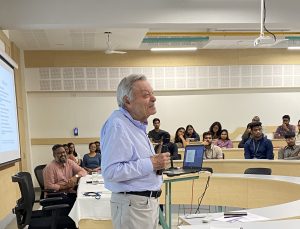 Mr. Alain Bertaud, Distinguished Visiting Scholar, Mercatus Center, George Mason University
Mr. Alain Bertaud, Distinguished Visiting Scholar, Mercatus Center, George Mason University
On the planning of cities:
“Planners, or architects like me, have an ideal city in mind, and they would like the city they live in to become this ideal city. This, I think, is totally wrong and will never succeed. I think a city is made by what I call ‘spontaneous order’. That means the people who are living in the city invent new things, create shops, restaurants, cinemas, etc., and this has to be allowed to happen. And the planner cannot know in advance how many cinemas are required in the city.
And so, they should be very modest, and they should also concentrate on the things they can do, like managing streets, managing the space on streets, for instance, having walkable sidewalks rather than agonising about things that don’t matter. Like what should be the minimum size of a bedroom? The consumer will decide that.
We are not there to invent a new city. We are there to respond to the demands of the citizens. And again, the criteria is whether those citizens — all of them — benefit from the city.”
On the conference:
“I am always very happy to see people much younger than me, because they have a future. And, I’m sure that eventually they will be in command. They will be influential. Ideas percolate through the mind of people. Maybe one day they will be confronted with a problem that I have addressed, and maybe something that I have said will inspire them, hopefully.”
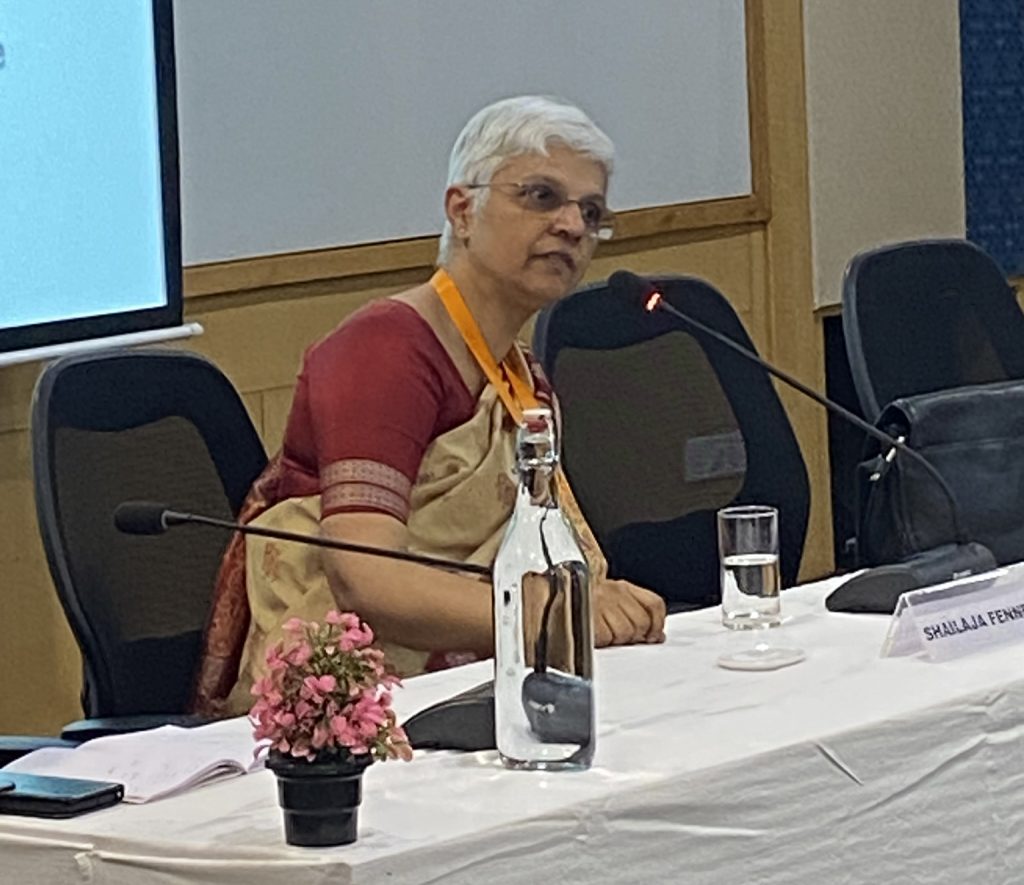 Dr. Shailaja Fennell,
Dr. Shailaja Fennell,
Professor of Economic Security and Resilience,
Deputy HoD, Department of Land Economy,
Director, Centre of South Asian Studies,
Fellow and Director of Studies, Jesus College University of Cambridge
“It’s a fabulous idea to have an interdisciplinary conference that is allowing us to think about housing and land management across the social sciences with lawyers and economists and architects. I looked at all the papers [submitted by the young scholars]. There’s really a high quality of papers, engagement, rich empirical detail, lots of conceptual thinking. So it’s great to see the next generation of scholarship working on this. What I address in my valedictory address is how we could reconceptualise the housing market by regarding housing not as simply an asset, though of course it is an asset, but as a way for human beings to live and to be. And so then we think of housing as a form of human agency, and that would give us a new set of framings within which we can think about urban inclusion.”
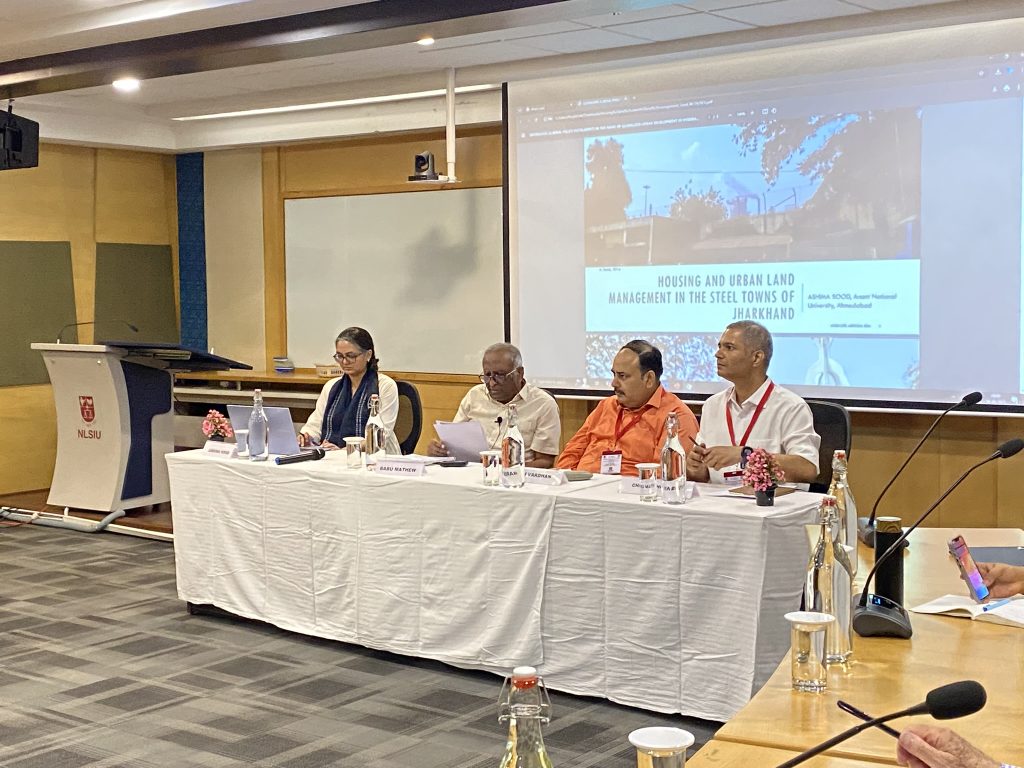 Dr. Ashima Sood, Associate Professor, Director, Centre for Urbanism and Cultural Economics, Anant National University, Ahmedabad
Dr. Ashima Sood, Associate Professor, Director, Centre for Urbanism and Cultural Economics, Anant National University, Ahmedabad
“I’ve really enjoyed the selection of papers, which speak to the ‘contemporary Indian city’, especially the matter of housing and how informal housing is transforming the city. This includes, for example, redevelopment in the core areas, which some of the speakers highlighted. A lot of previously undocumented kinds of phenomena related to housing have now found recognition in the conference papers. And not just recognition, but actually careful analysis and documentation.”
Dr. Chetan Choithani, Assistant Professor, National Institute of Advanced Studies, Bengaluru
“It was great to be a part of National Law School of India University’s conference on Housing and Urban Land Management in an Unequal World. The conference brought together early career and senior academics to discuss policy-relevant issues of recent trends in urban expansion, massive land transformations to support urban growth and growing inequalities in access to affordable housing. Discussions on the questions of urban land and housing tend to focus on large cities. But urban expansion in India is increasingly led by small places, involving former rural regions turning into urban centers. These places remain ignored even though they involve millions of people being affected by rural-urban transition. If we are to address the challenges of urban poverty and inequality, we need to also pay attention to these new urban geographies.”
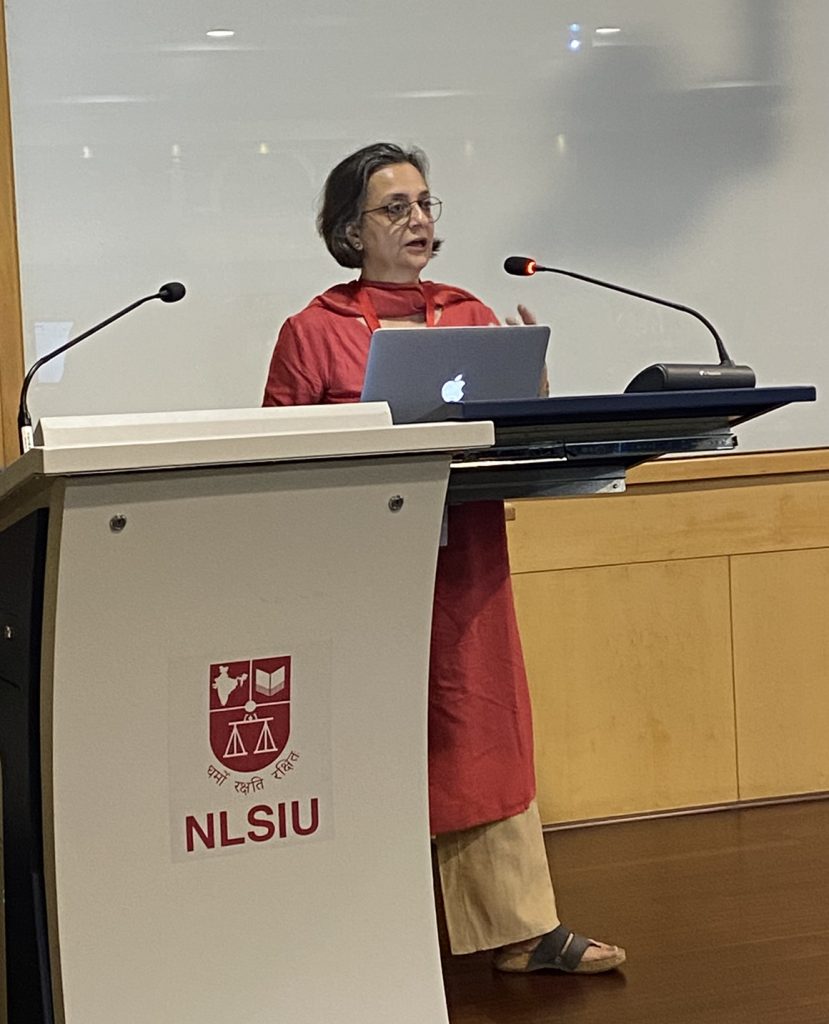 Dr. Anjali Karol Mohan, Partner at Integrated Design & Visiting Faculty, NLSIU
Dr. Anjali Karol Mohan, Partner at Integrated Design & Visiting Faculty, NLSIU
“While the conference is largely focussed on housing, I was looking at the urban question. And within that, I focussed largely on the transformations of neighbourhoods and how those are lending to the larger housing question and how those need to be grasped. And within that, a further focus was really on the neighbourhood and how do you start to understand those transformations.
Conferences are good in the sense that, one, it brings in a whole diversity of perspectives, and also allows for the floating of certain ideas, which I think need traction, a new direction, a new dynamic that needs better research, but also policy attention and practitioner focus. And I think that at a very personal level, it pushes me to explore in a deeper sense, some of the questions that are there in my own head and perhaps write about them.”
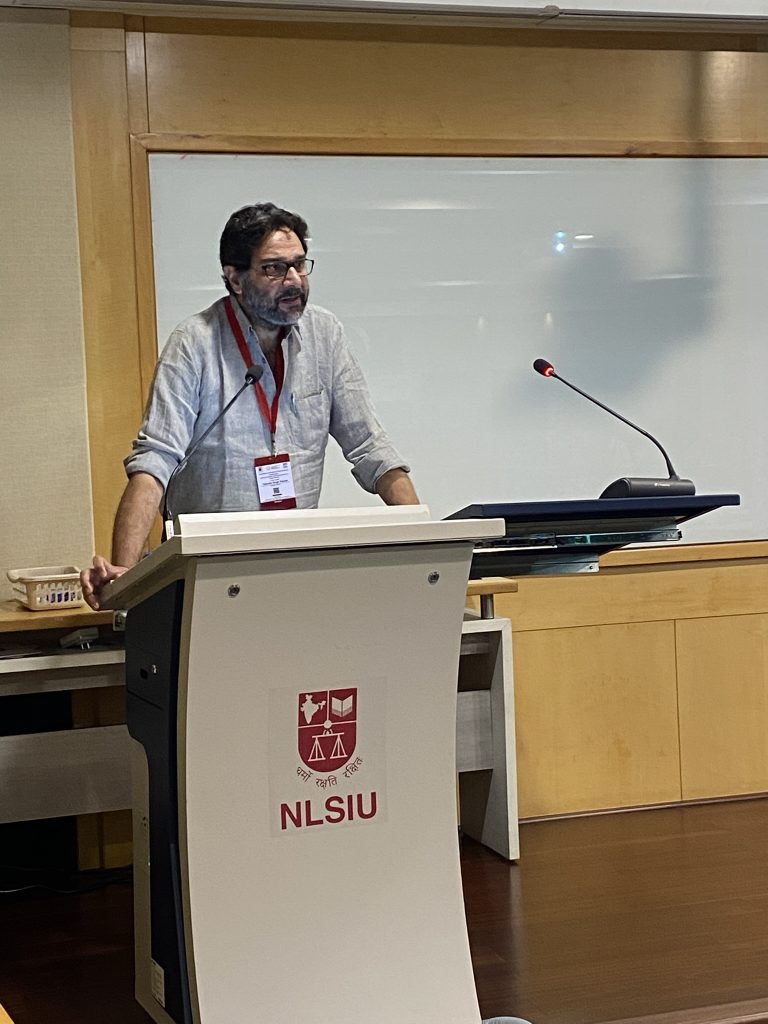 Tikender Singh Panwar, Visiting Senior Fellow, Impact and Policy Research Institute, New Delhi
Tikender Singh Panwar, Visiting Senior Fellow, Impact and Policy Research Institute, New Delhi
“I’m extremely grateful to the National Law School Bengaluru for organising this wonderful conference. I’m so glad that we are at least accepting this reality that we’re living in an unequal world makes this conference all the more vibrant and, also, quite objective.
This whole question of inequality creeping in the cities and especially from the housing perspective also needs to be seen in the larger ecosystem of the way urbanisation has unfolded in our country. To me, I think the processes are very important. And in India, unfortunately, urbanisation is not preceded by industrialisation where the labour gets adjusted. It’s basically informalisation that is driving India’s organisation, and it’s poverty driven. In this context, if we have to look at some of the sustainable futures, then we must recognise the fact that informalisation is there to stay for a longer time. And it is in this informalisation that the engagement of the state also has to come in the form of very strong interventions to be made, both at the governance level and also at some of the infrastructure level.
Housing, if you see in the last couple of decades, has become completely commoditised. We have to come out of this mindset of what I call as free market economics, and have to go back to the basics of city planning, which means that the city must be planned by city makers. How do you create that structure of creating the infrastructure in the city? That has to be seen. Especially when the marginalised are completely eliminated.
Until and unless we are able to bring in those processes, I think it would be some exercise of big tech consultants driving the force and then leading to some of the very simple solutions that can be afforded. If it’s informal sector driven, then you require a complete new paradigm of networking and reclaiming the city — what I call right to the city.
I think those processes were very vividly discussed here at the conference.”
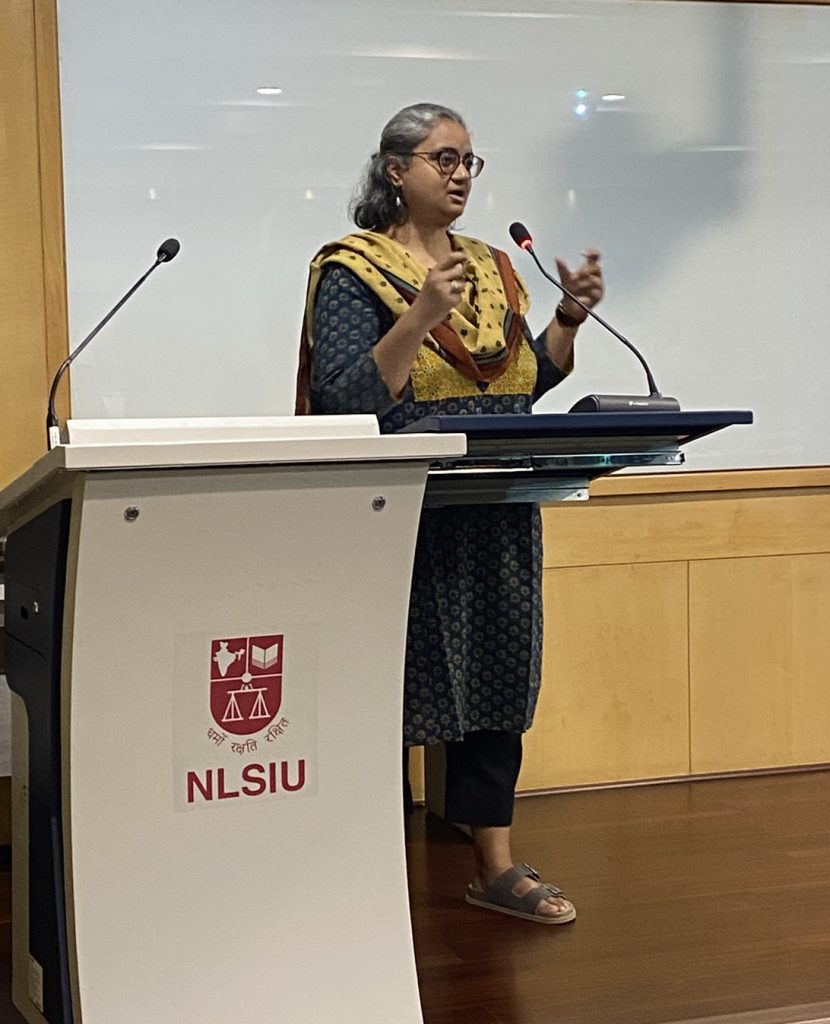 Sheema Fatima, Assistant Professor, School of Architecture, NMIMS, Mumbai and Urban Researcher
Sheema Fatima, Assistant Professor, School of Architecture, NMIMS, Mumbai and Urban Researcher
I thought this was a nice initiative where a lot of young scholars got an opportunity to talk about their work. And the best part was that it was not too crowded, so it was not rushed. And everybody took time to read the paper because there were few, and everyone took a lot of time to even comment. So it was almost like the commenters were also invested in the conversation. Unfortunately, in large scale conferences, the young scholars are sidelined and, you know, the dominant voices are always repeatedly heard. So in that way, I thought it was very nice, and I absolutely enjoyed it. It was a great learning for me also to hear from a lot of young scholars because, you know, methodologically also we went through different geographies. Everybody’s pushing the narrative about how to look at housing, etc.
Through my own work in this conference, I spoke about how you look at a non metropolitan city like Patna, not through trappings of what is formal and informal. Through my work, I’ve looked at how caste impressions are visible in the spatial layout of the city. And, we imagine there was no process of urbanisation in Patna because it doesn’t fit the standard narratives of what is a process for urbanisation. But yet the city exists, and it has a rich history. I had good feedback and the whole panel was very interesting.”
Dr. Jayprakash Chadchan, Professor, School of Architecture, CHRIST (Deemed to be University), Bengaluru
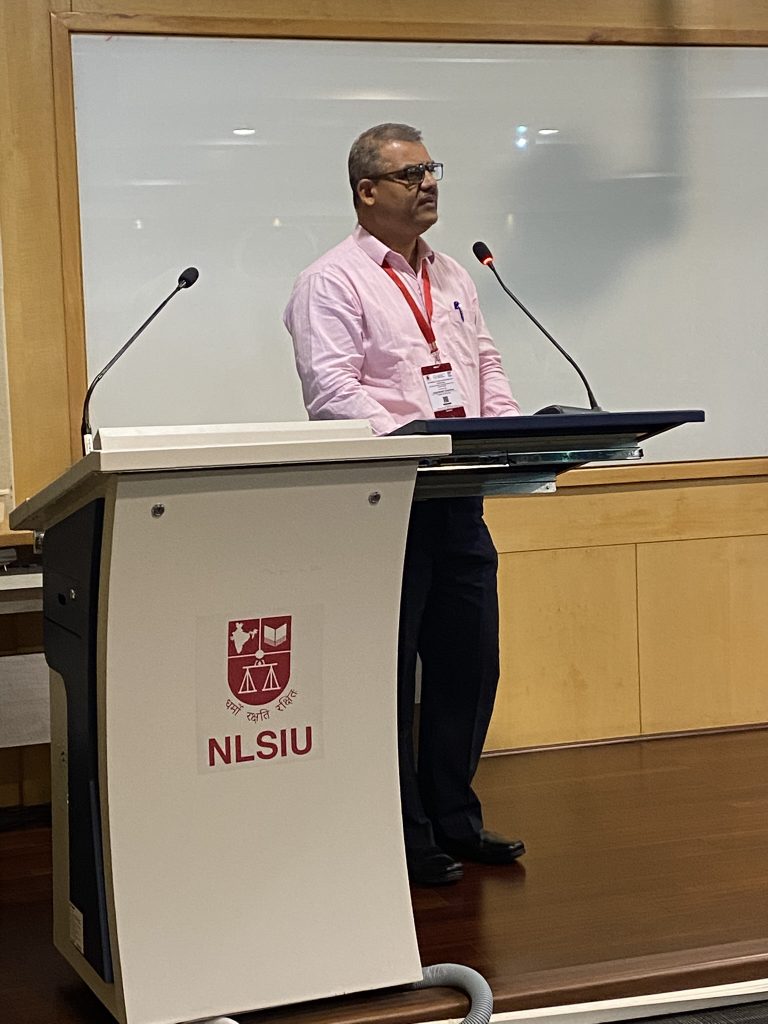 “It was a wonderful time conversing with such intellectual minds here. Thank you for the invitation. I think the theme is appropriate and very much a need at this crossroad when India is aspiring to be a developed nation. As I said in my talk that housing and land management are two pillars which will be a foundation for this. Because they always act as the other side of the urban development process. Because without housing, without land, you cannot witness sustainable development, especially in a diverse country like ours with a lot of aspirations and, lot of upcoming cities and towns of varied sizes. I think we are having this dialogue at the right moment.
“It was a wonderful time conversing with such intellectual minds here. Thank you for the invitation. I think the theme is appropriate and very much a need at this crossroad when India is aspiring to be a developed nation. As I said in my talk that housing and land management are two pillars which will be a foundation for this. Because they always act as the other side of the urban development process. Because without housing, without land, you cannot witness sustainable development, especially in a diverse country like ours with a lot of aspirations and, lot of upcoming cities and towns of varied sizes. I think we are having this dialogue at the right moment.
It’s time for all the stakeholders to come together whether it’s academicians, researchers, industry stakeholders, or public authority officials. They should work closely together to outline a blueprint for our future Indian cities in a meaningful, sustainable and holistic way. We should be asking how we can develop sustainable cities, while at the same time, giving an opportunity for all the aspiring youth. We must empower them in the next decade or two, create employment and take care of their housing and other facilities to promote well-being. So I think this is a fantastic platform and we need to continue this process of dialogue, in the upcoming sessions.”
Reflections from the Participating Young Scholars
Paper Title
“Illuminating Inequality: Intra-State Economic Convergence and Regional Disparities in Karnataka, 2 India”
Abstract:
The phenomenon of regional economic convergence, where poorer regions grow faster than richer ones, thus reducing the income gap, has been at the forefront of economic research. Even though many studies look into cross-country and inter-state convergence, little attention has been given to intra-state economic convergence. Us ing village-level nightlight luminosity data as a proxy for economic activity, we test absolute and conditional economic convergence within Karnataka, India. We also examine regional disparity in the state’s growth of nightlights over the past few decades. We show that less developed regions are catching up with their more prosperous counterparts at a higher rate than predicted by previous literature. However, regional disparities still exist in the state, with the Hyderabad-Karnataka region significantly lagging behind the rest of Karnataka in terms of growth. These findings have essential policy implications in India, where there is more emphasis on inter-state than intra-state disparities. The findings of this study contribute to the existing knowledge of intra-state economic convergence.
Quote:
“The conference was an excellent and professionally organized event. The conference truly valued young scholars’ work by assigning a dedicated professor as a discussant for each paper, ensuring insightful and constructive feedback. I benefitted lot from the discussions within and out of the seminar room, gaining exposure to new methodologies and fresh perspectives that will help me conduct more in-depth research.”
Paper Title:
“Challenges in low-income shared rental housing (LI-SRH) markets in India: A case study of two formally operated shared rental housing suppliers in Bengaluru”
Abstract:
As our cities expand, many migrants find their way into urban areas and face a severe dearth in housing. This paper examines a segment of the Shared Rental Housing (SRH) market – registered Low-income Shared Rental Housing (LI-SRH). The unaided LI-SRH market, whether registered or unregistered, offers inexpensive shelter to those who migrate to cities for education and employment. One of the main features of shared rental housing for tenants of low-income is that these housing facilities are operated and maintained by registered or unregistered rental operators who are neither the tenant nor the landowner. The unregistered segment (also called paying guest accommodations) dominates the LI-SRH market but registered rental housing operators also play an important role in forming the third key stakeholders in the shared rental housing market — Rental Housing Management Companies (RHMCs). The registered RHMCs, however, are not identified or recognised by the government or any agency, which negatively impacts them.
Based on qualitative research conducted in Bengaluru, India, this paper examines how business models of RHMCs in the low-income shared rental housing market are impacted by various factors even as they provide cheap housing for low-income migrants while maintaining the minimum standards of affordable, viable and adequate housing. It explores their relationship with unregistered shared rental housing providers and their challenges in navigating the market without any support from the government. This paper brings to light an under-studied yet key stakeholder in the LI-SRH market and serves as a much-needed starting point for future research.
Quote:
“The inclusive development conference is so timely to have discussions on the topics of housing and urban land management in the current socio-economic scenario that India is facing right now. The panel discussions were well curated with insights from diverse perspectives of Law, Sociology, Policy and Governance that were thought provoking and insightful.”
Paper title: “Politics of Policy Categories: Informal Settlements in Guwahati”
Abstract:
The paper critically examines how the regional state constructs policy (slum) categories in the contested urban geography of Guwahati city in Northeast India. It exposes the internal incoherence between policy frameworks and governance practices. The paper argues that policy (slum) categories are unstable, nominal, and have a spectral presence. In practice, the governance of urban informality in the city is shaped more by powerful regional political currents.
Quote:
“I thank the conference organizers for this incredible opportunity. It was an illuminating experience to hear from such extraordinary speakers and learn about their research. I especially appreciated the energy of our young scholars cohort — it was truly inspiring to be part of such engaging discussions. I have received some great comments on my paper that will help me further reflect on my work.”
Paper title: “Creation of the ‘Other’ in Urban Discourse – A Case Study of Kochi City, Kerala”
Abstract:
With the emergence of cities as growth centers, the question that naturally arises is whether they have really emerged as a space for inclusive development. Do all urban citizens have equal access to basic amenities or some of them face discrimination and lead a life as ‘the other’ in the urban settlement? If so, who are the ‘others’? This study is an attempt to explore this question in the context of contemporary urban development in India.
The process of gentrification brought about a demographic and economic shift to cities. It is an urban condition where wealthier new comers and real estate developers dominate the larger urban space through sidelining urban poor and the working class. The metropolitan capital governs the cities today and the same is deeply entrenched in the contours of place-making and identity formations. The case of Kochi is a classic example to be delved upon in such a global context.
This study therefore takes place-making and identity formation as key determinants in order to understand the very creation of the ‘other’ in an urban space through taking the case of Kochi city in Kerala. Drawing on qualitative studies documented in the city of Kochi, Kerala, the study attempts to complement the economic aspect of othering with other related dimensions.
Quote:
“ Othering is a continuous process that manifests across housing spectrums in an urban space.”


